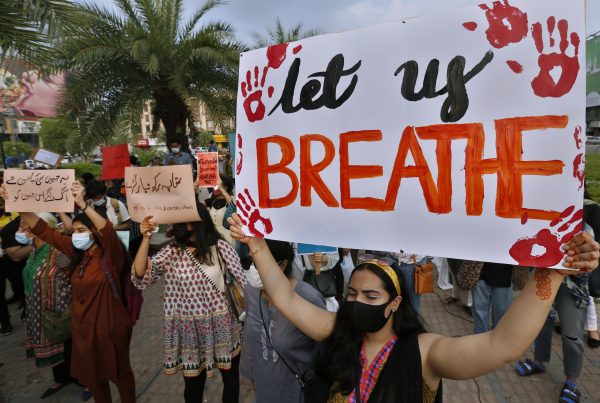
Economic, cultural, social, and political subjugation is a defining characteristic of the life of the average Pakistani woman from birth. There is a significant status disparity between men and women in Pakistan.
This includes laws that discriminate, poor policies, strategies, and programs, as well as insufficient financial resources. Additionally, it has negative cultural and social practices.
Due to a lack of political will and the absence of substantial or effective affirmative action, the discrepancies persist.
In Pakistan, there are many distinct sorts of violence against women. Domestic violence, which is quite widespread, can take the form of physical, mental, or emotional abuse.
Even though rape is still the most common type of violence against women, very few cases are recorded or taken to court because of the shame attached to the victim.
Recent information acquired from several NGOs shows that 257 women in Sindh over the past three months were victims of numerous violent actions, including physical assault, rape, kidnapping, domestic abuse, and honour killings, highlighting the deplorable status of women’s rights in Pakistan.
Various NGOs fighting for women’s rights are bringing to light the appalling situation of women in Sindh. The statistics show that 257 women in Sindh were the targets of violent crimes that were reported to neighbourhood police stations.
According to Pakistan’s local media outlet, Daily Times, out of these 257 cases, 70 women reported physical assault, 46 reported rape, 29 reported kidnapping, 38 reported domestic violence, 29 reported kidnapping, 41 reported deaths, and four reported honour killings (also known as Karo-Kari) across Sindh during the past three months.
All of this continues to occur in Pakistan despite the country’s numerous laws. The administration in Sindh has entirely failed to uphold and protect women’s rights.
Among the laws are the Domestic Violence (Prevention and Protection Act), the Protection Against Harassment of Women at Workplace Act, the Criminal Procedure Code (and PPC) (Third Amendment) Act, and the Anti-Women Practices (Criminal Law Amendment) Act, both of which are from 2013. The Sindh Child Marriage Restraint Act from 2013 also falls under this category.
Women’s assaults conducted in the name of honour continue to be a reflection of Pakistani society’s discriminatory views on womens. Discrimination exists even for womens of Pakistani heritage who live overseas.
In May of this year, Pakistan had the most instances of rape, violence against women, and kidnapping of women, according to a research by the Sustainable Social Development Organization (SSDO) and the Centre for Research, Development, and Communication (CRDC).
The province of Punjab recorded the highest incidents of women and children being mistreated, followed by Sindh and Khyber Pakhtunkhwa, according to the report’s findings.













